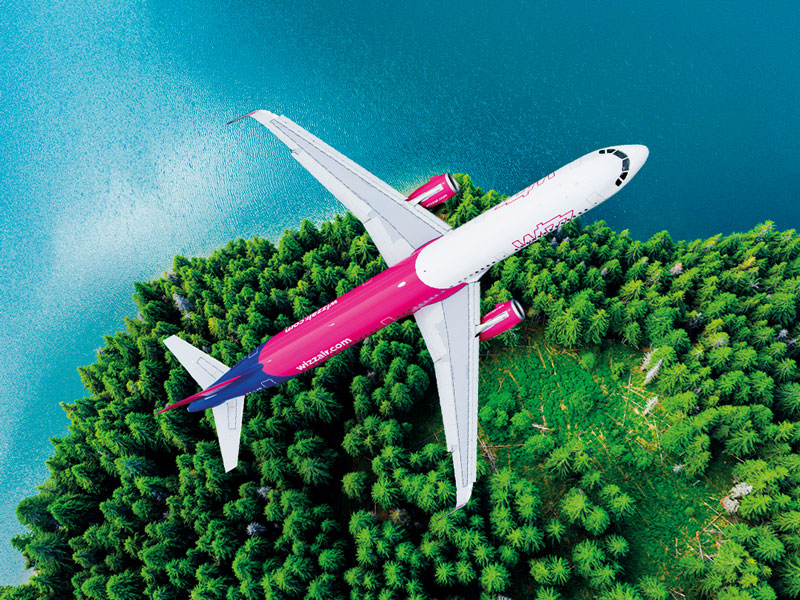
Top 5
Two years – that’s how long it’s been since COVID-19 struck and air travel was hit by the greatest existential crisis since the Wright brothers first took flight at Kittyhawk. There is no doubt the impact on our industry was and will continue to be profound. But in retrospect, the shutdown of global passenger air travel created absolute clarity in terms of situational analysis, the speed with which tactical decision-making had to be made and a base case of zero revenue to plan for in the short and medium term.
Strength of balance sheets fast became the single most important lens through which stakeholders could judge an airline – cash burn was key and reducing it the single most important decision to make.
Of course, that didn’t happen overnight and the partnership approach to creating those short-term solutions was paramount. In a matter of days, and in some cases, even hours, decisions were taken. Everyone in the airline value chain had to take giant leaps, in unison. This was our Global Financial Crisis and as an industry, we met the challenge.
Cash is king
From Wizz Air’s perspective, the strength of our balance sheet was vitally important to bridge the post COVID-19 period. But even more importantly, to create a real competitive advantage as we embraced this crisis, in order to significantly improve our relative position – getting access to destinations that previously would not be open to us, leveraging our ultra-low-cost business model, enabled by our Airbus fleet order and delivery programmes.
This fleet order, in conjunction with our business model, does not only deliver the lowest cost (and as such enables the lowest fares for customers), it also delivers the lowest emission intensity in the industry as we fly the most modern fleet, which use ultra-efficient GTF-powered engines designed to reduce fuel consumption and carbon emissions, with the most optimised seat density in an aircraft – efficient yet highly comfortable for passengers.
Early on in the pandemic, we made the decision to accelerate our growth as the industry was being reset and we put forward our WIZZ500 strategy, to become a 500 aircraft airline by the end of the decade. The reality is that COVID-19 forced the acceleration of major fleet decisions within the airline industry, leading to the retirement of older and less fuel-efficient aircraft.
Significant lessons have been learned and there is no doubt that all parties in the airline supply chain will be seeking to develop new ways of working that embed resilience into contractual agreements. However, the challenge for the industry is this: do we go back to the previous status quo or embrace the opportunity to create a better and more efficient ecosystem, rethinking and realigning to the needs of our customers, without over-reliance on government-backed legacy business models?
Rebooting technology’s role in aviation
Customers have enjoyed decades of airline travel at ever reducing costs, but there are emerging geographies where new customers can only access air travel for the first time via ultra-low-cost carriers. How can we balance the need to connect more people, connect more communities and allow them to improve their economic prospects, with the need to reduce our carbon footprint?
Technology in combination with the business model is part of the answer. Today, the industry would reduce emissions overnight by 34 percent if it adopted the technology and business model of Wizz Air. With full fleet conversion to the current available best technology, Wizz Air intends to further reduce its carbon emission intensity by 25 percent by the end of the decade. In the next decade, better hydrocarbon-based engines, electric and hydrogen are all possibilities. But investment in new technology needs to be encouraged, not throttled, by policies. It’s clear to Wizz Air that taxes/fuel taxes need to focus on emissions, rather than other metrics, as only that way can governments force the pace of technological change.
In the past two fiscal years, which were loss-making for the airline, Wizz Air paid around 20 percent of revenue on taxes unrelated to profits or the people it employs. Of these taxes, more than 70 percent was based on how many people we transported rather than how efficiently we transported them and to our knowledge less than a few percent of these tax proceeds was invested in enabling infrastructure for a carbon net zero future.
However, the current thinking that allows tax breaks for long haul operators and highly polluting connecting traffic, and which therefore favours the current status quo of inefficient carriers and airports, needs to be challenged.We would encourage non-corporate income or employment taxes to be designed to incentivise lower fuel technologies and business models.
Coming through the clouds
There are also inefficiencies that need addressing, such as slot policies that favour incumbents and encourage half empty flights, that simply can’t withstand any rational economic, business or sustainability analysis unless the core goal is to stifle competition. We would encourage regulators to examine these structures closely, both through an economic and a sustainability lens.
We also see a significant opportunity to fundamentally rethink how airspace is controlled in Europe. At present, ATC strikes in key overflight areas like Italy or Poland, not only cause major disturbances for our customers, but they increase ticket prices and emissions, as flights paths are adjusted and lengthened by industrial action. As we emerge from the COVID-19 crisis, when so much has been achieved in realigning fleets and emissions characteristics, there is an opportunity to rethink how all players in the airline value chain, including regulators and governments, can meet the needs of our customers, while addressing the fundamental sustainability issues that face the industry.


